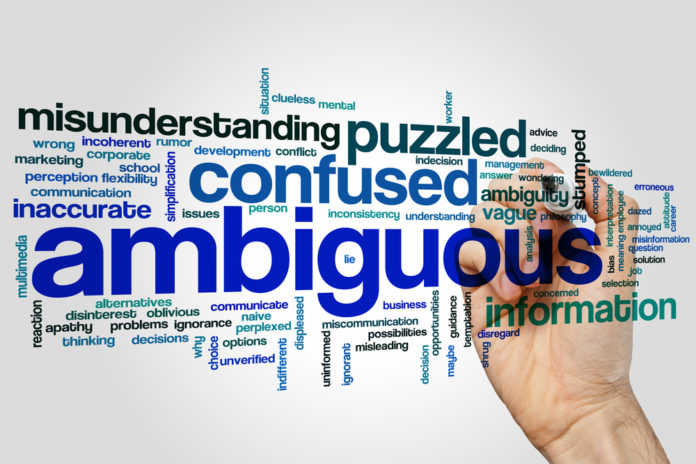Appeal of claim disputing the agency’s interpretation of a contract provision is denied where the disputed provision contained a patent ambiguity. A contractor has a duty to clarify a patent ambiguity before accepting a contract. Here, the contractor failed to clarify, so CBCA resolved the ambiguity in favor the government.
Harry Chupnick had a contract to provide hearing reporting services to the Social Security Administration. Under the contract, Chupnick was entitled to (1) $5 for hearings that were not held as scheduled and (2) $50 for hearings that were convened but not completed. Chupnick filed a claim for over 100 hearings where the judge spoke briefly to the parties but did not swear anyone in. Chupnick claimed these hearings were convened by not completed and thus he was entitled to $50 for each. SSA denied the claim, contending the hearing were really hearings that were not held as scheduled to which Chupnick was only entitled to $5 per hearing. Chupnick appealed the denial of his claim to the CBCA.
The board found that the contract contained a patent ambiguity. A hearing in which a judge speaks briefly but does not swear anyone in could be either a hearing not held as scheduled or a hearing convened but not completed. When a contract contains a patent ambiguity, a contractor has a duty to inquire about the ambiguity before signing the contract. Absent such an inquiry, the ambiguity will be resolved in favor of the contractor.
Chupnick did not clarify the patent ambiguity before accepting the contract. He could not maintain his claim.
Harry L. Chupnick represents himself. The government is represented by Brandon Dell’Aglio and Alice Somers of the Social Security Administration.




